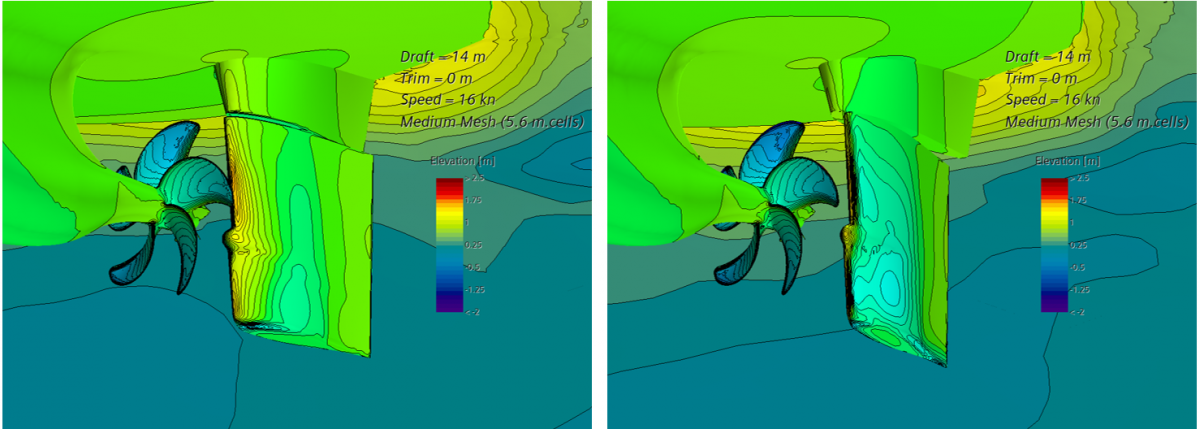In the years 2022-2024, Andreas supported the Institute for Sustainable and Autonomous Maritime Systems (INAM) at the University of Duisburg-Essen (UDE) in conducting CFD investigations for the BMWK-funded research project DigitShip.
Read more: CFD support in the BMWK-funded research project DigitShip (2022-2024)The project aimed to develop mathematical models to identify the causes of increased energy consumption of ships under real operating conditions.
Key influencing factors such as trim and loading conditions, sea state, shallow water, manoeuvring and wind were analysed to quantify their contribution to total power demand. A ship-specific and a simplified general model were developed for each factor contributing to the total power consumption.
A container vessel was instrumented with sensors to measure navigation data, ship motions, loading, and environmental conditions. These data sets were used to develop, validate and apply the models. The models were derived from regression analyses and literature data. Extensive CFD investigations were carried out to verify the simplified models.
The resulting method enables “smart steaming” – an approach where fuel consumption is reduced by adjusting nautical parameters along the route, based on on-board evaluations of real-time ship and environmental data.




